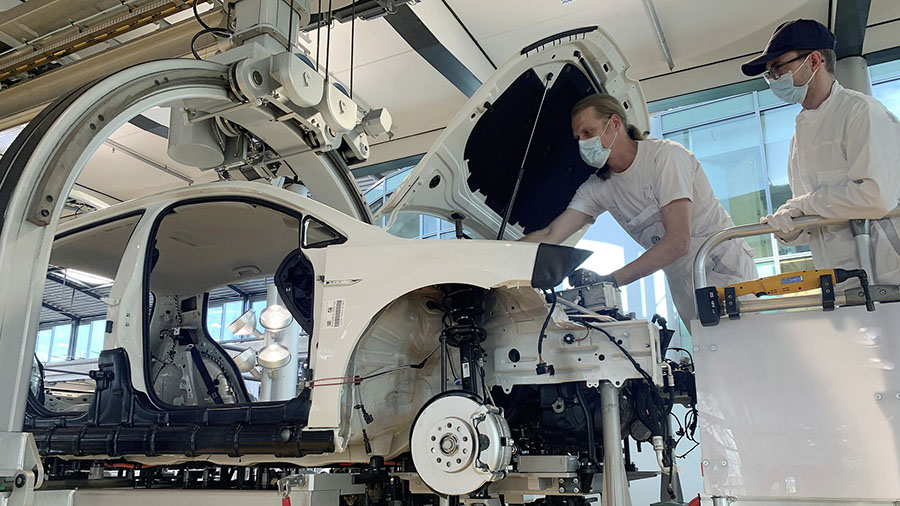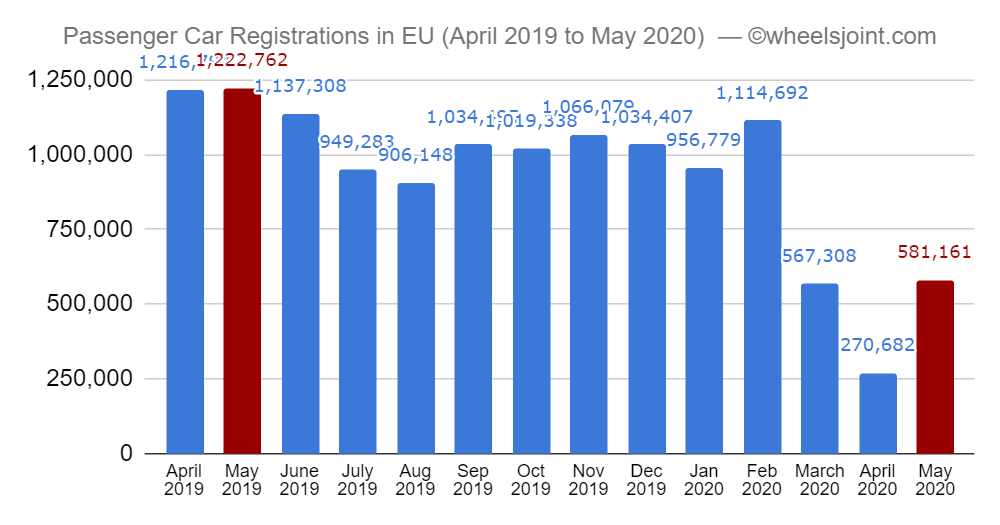The number of new registrations fell in double digits in each of the 27 markets in the EU. Compared to the previous month, it is still an improvement.

European car market is slow to take off: After many EU countries loosened their restrictions on protection against the corona virus in May, car manufacturers hit a good 300,000 cars more than a historic low in April. Compared to the previous year, however, new registrations in the European Union halved to 581,000 vehicles, as the manufacturers’ association Acea announced in Brussels on Wednesday.
Experts expect a further recovery in June. However, because of the lowering of VAT in Germany from July, many consumers are likely to wait. The effect of the federal government’s economic stimulus package on the auto industry is already manageable, says Peter Fuss from the management consultancy EY.

The effect of the state measures in France is different, where the purchase of diesels and petrol is also promoted. “The French purchase bonus will have the desired effect, that is to encourage many people to buy new cars in the short term,” Fuss believes. Even if some of these are early purchases, this will help the industry over the difficult summer months.
Boom in electric cars
The auto expert is convinced that the higher state subsidy for electric cars will lead to further increases in their registrations. “The price reduction when buying an electric car in Germany is now actually enormous at 9,000 euros.” This almost halves the price of cheap e-mobiles, including possible discounts from dealers. This will undoubtedly increase the interest of buyers.
However, the range of available battery vehicles is still limited. In addition, increasing sales do not necessarily mean higher profits. “The auto industry is currently making hardly any money from electric cars. The margin is much larger for combustion engines – but they are not subsidized,” Fuss explains.
By lowering VAT to 16 percent from 19 percent in July, cars with combustion engines will also receive a discount. For a new car at a price of 30,000 euros, that’s 900 euros.
In May, registrations of purely battery-powered vehicles in the five largest countries in Western Europe climbed by a quarter. The sales of plug-in hybrids, which in addition to an electric drive also have a combustion engine on board, even increased by 59 percent. By contrast, gasoline and diesel vehicles saw massive losses, with sales falling by almost two-thirds according to EY calculations in Germany, Great Britain, France, Italy and Spain.









